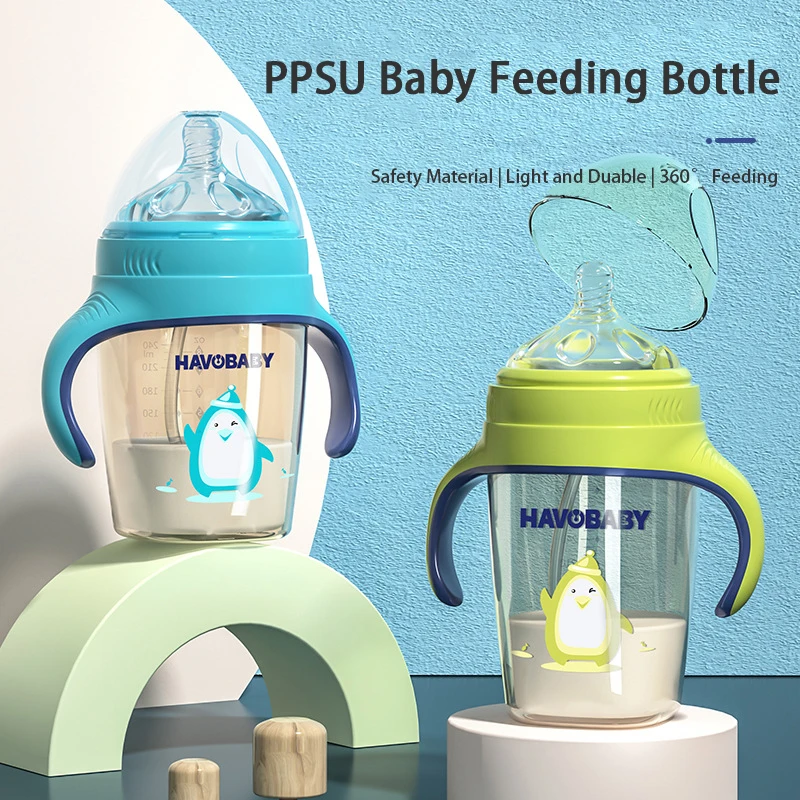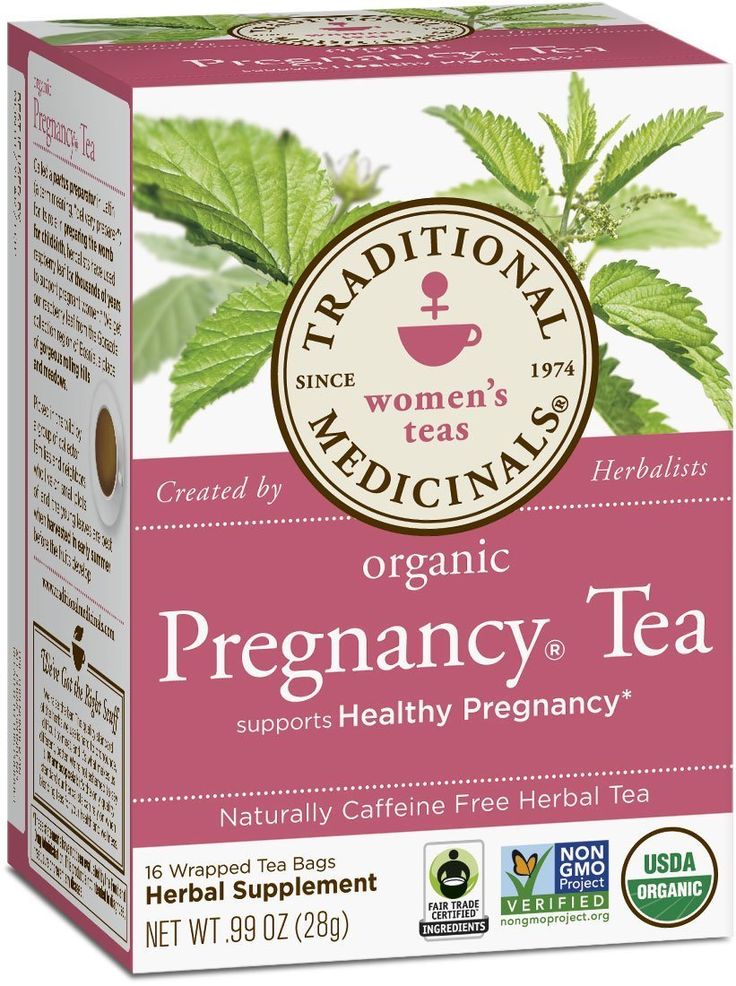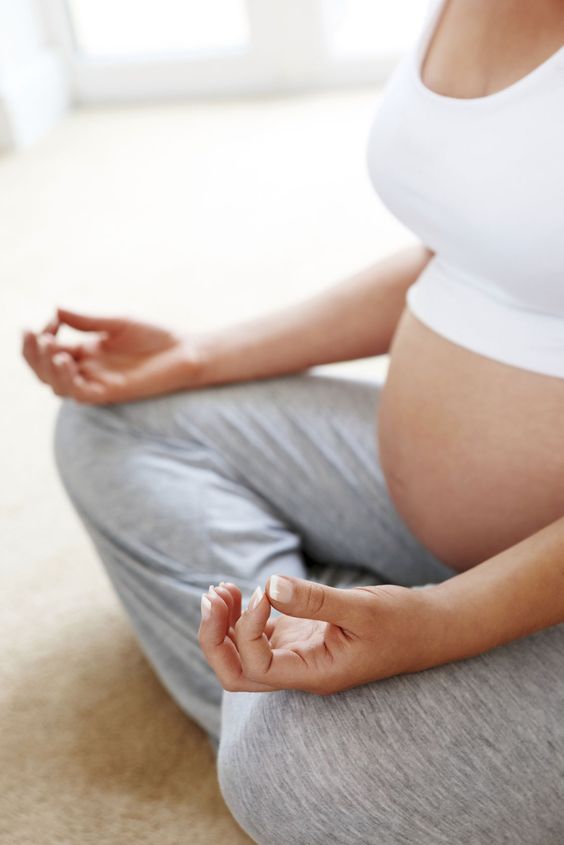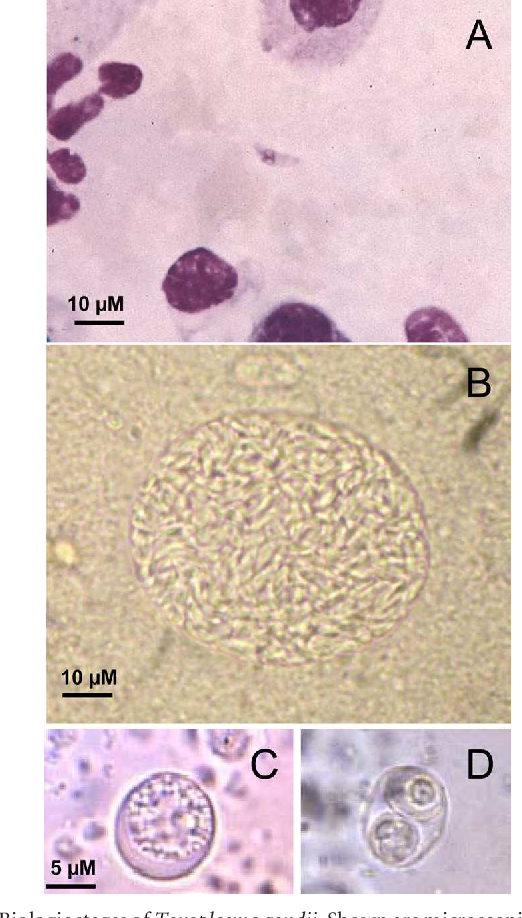Week 11 pregnancy ultrasound
You and Baby at 11 Weeks Pregnant
Key Takeaways at 11 Weeks Pregnant
- Between now and week 14, you’ll have the first trimester screen; this consists of a nuchal translucency screening (NTS) via ultrasound (this looks at the thickness of the back of baby's neck) and a blood test. Together, the results can determine baby’s risk for certain chromosomal abnormalities or conditions.
- You may have a teeny baby bump at this point—or your clothes might start feeling a bit tight. Either way, you won’t be able to get away with your regular jeans for much longer.
- You’re in the thick of the first trimester and those pregnancy symptoms are still strong, thanks to all that hCG flooding through your system. Sore breasts, morning sickness and out-of-control exhaustion are just a few things you might be experiencing. Rest assured that these unpleasantries should improve in a few short weeks as you approach the second trimester.
Pregnancy week 11 is a great time to start planning a babymoon with your partner. We recommend you go on this trip in the second trimester, since that’s when you’ll feel most energized, and we doubt you’ll want to do a lot of traveling once you hit the third trimester. So at 11 weeks pregnant, take your mind off your queasiness and start scouting some destinations now. (Staycations totally count!) If you need another diversion, imagine your growing baby at 11 weeks, doing just fine in there, becoming more developed every day.
Watch Week 11 Highlights
Baby at Week 11
You can't see it, but baby is moving fluidly and gracefully inside your 11 weeks pregnant belly. Your 11-week fetus has skin that’s see-through but is on its way to becoming more opaque. At 11 weeks, baby's fingers and toes aren't webbed anymore. Tooth buds, hair follicles and nail beds are forming too. Cool, huh?!
How big is baby at 11 weeks?
Baby is now as big as a lime! Your 11-week fetus is about 1.6 inches long and weighs in at about .25 ounces. They’ve got about a 1:1 head-to-body ratio.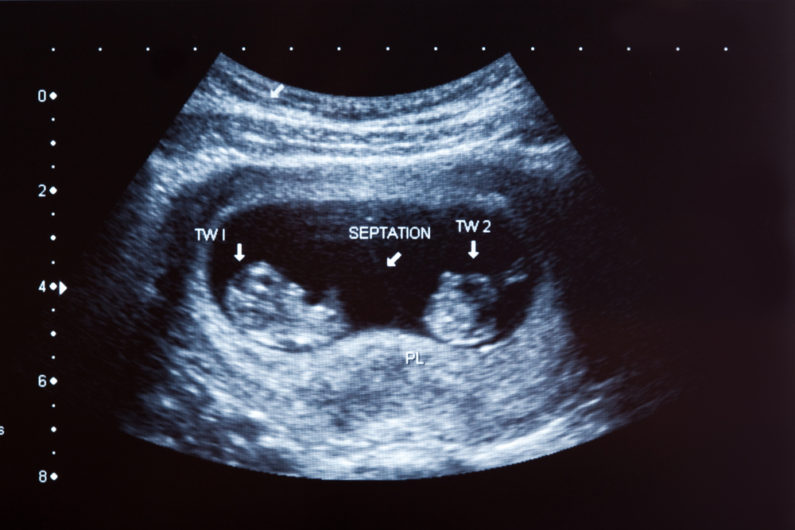 (It may sound weird, but that will change!)
(It may sound weird, but that will change!)
11 weeks pregnant is how many months?
Pregnancy lasts 40 weeks, so doctors tend to track your progress by weeks, not months. But if you really want to know, at 11 weeks you're about two months and three weeks pregnant. In three more weeks, you’ll begin the second trimester.
11 week ultrasound
Right around now—between weeks 11 and 14—you may be getting a first trimester screen. This is a combo of a special ultrasound called a Nuchal Translucency Screening (NTS) and a blood test. During the 11 weeks pregnant ultrasound, the technician or doctor will measure the back of baby’s neck. An abnormal measurement could be a sign of a chromosomal abnormality. Then the blood test will screen for too-low or too-high hormone levels. Taking into account the results of both the NTS and the blood test, your doctor will tell you baby’s risk of having certain chromosomal conditions. Waiting for the results may be nerve-wracking, but knowing the results will likely give you peace of mind.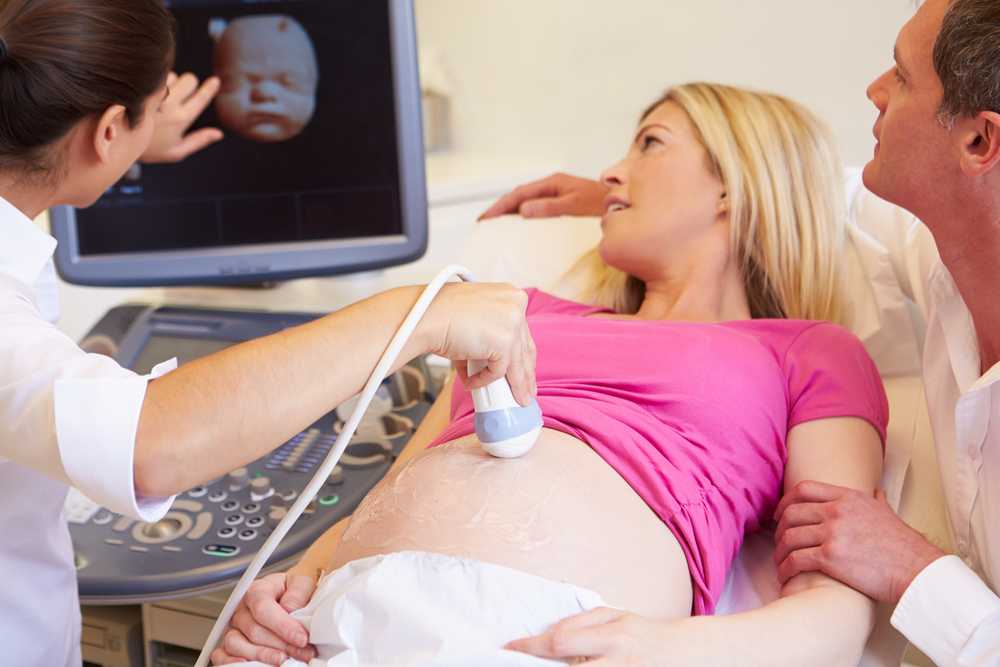
For women who are 11 weeks pregnant with twins, an ultrasound at this point would show the babies’ umbilical cords and either one placenta or two. If the babies share a placenta, the fetuses are probably identical twins. If they have two separate placentas, they may be identical or fraternal. Identical twins sharing the same placenta usually need more frequent check-ups to be sure they’re both getting enough nutrition. Yep, even in utero these siblings already have to learn to share!
3D Views: My Baby, My Body
See their progress for yourself with our 3D interactive tool.
See My Baby in 3D
See My Body in 3D
Pregnancy Symptoms at Week 11
Around 11 weeks, your body (and mind!) are still completely haywire. It’s probably tough to feel calm right now, since your hormones are still raging and you may still be feeling pretty nauseous. But know there’s light at the end of the tunnel—just a few more weeks left in the first trimester, which is notoriously the worst for pregnancy symptoms! Here’s more about what you’re likely feeling at 11 weeks pregnant:
Fatigue
You’re beat, but you can expect a surge in your energy in trimester two. Until then, give yourself permission to kick back and get some extra rest.
Until then, give yourself permission to kick back and get some extra rest.
Nausea
We get it. You’re sick and tired of being sick and tired. We promise you should start to feel more like yourself soon.
Gas
Sorry, but tummy troubles are par for the pregnancy course. If you’re experiencing uncomfortable rumblings and bubblings, keep a close eye on your diet (if you’re able to hold anything down, that is) and try to avoid foods that make you gassy, such as beans, cabbage, fried foods and desserts. Drink lots of liquids and eat fiber-rich foods too.
Mood swings
Are you feeling up one minute, then down the next? Mood swings are completely natural thanks to the hormones swirling through your body. Try some mind/body exercises, like yoga, to help you feel more Zen. And if possible, avoid stressful situations. If the mood swings seem drastic, or you have a history of mental health issues such as depression or anxiety, it helps to check in with your doctor.
Leg cramps
Tight, painful muscles can strike at night and interfere with your sleep. Drinking plenty of water can prevent leg cramps, and so can stretching your legs during the day. You also want to take a look at your diet to be sure you’re getting enough potassium and magnesium.
Skin darkening
One morning you might wake and think, “whoa! What’s that dark line down the center of my belly and why is it there?” Well, this is a totally normal pregnancy symptom called the linea nigra. This dark line is caused by hormonal changes and isn’t usually permanent, though you might notice that it sticks around for a while after you give birth, especially if you breastfeed (because of the hormones involved with nursing).
Vaginal discharge
Okay, so you’re probably going to want to invest in some pantiliners, because an increase in discharge can be expected throughout your pregnancy. This 11 weeks pregnant symptom is your body’s way of eliminating secretions from the vagina and cervix.
Women who are 11 weeks pregnant with twins often have elevated hormone levels, which may mean double the symptoms and higher weight gain. Both are normal, and you’ll likely experience increased energy and decreased nausea in the coming weeks.
What you might feel like at 11 weeks pregnant
Wondering what you should feel like at 11 weeks pregnant? You’ve probably got some of those 11 week pregnant symptoms we mentioned, as well as general aches and pains as your body is undergoing so many changes. On the plus side, you may be noticing that your hair and nails are starting to grow. Above all, continue to listen to your body and rest when you need to.
Your Pregnant Belly at 11 Weeks
Is that a baby bump or gas and bloating? At 11 weeks pregnant, it can be hard to tell! Especially if it’s your first pregnancy, you might not be showing at 11 weeks. Women pregnant with their second babies and those who are 11 weeks pregnant with twins tend to start showing earlier than first-time moms-to-be.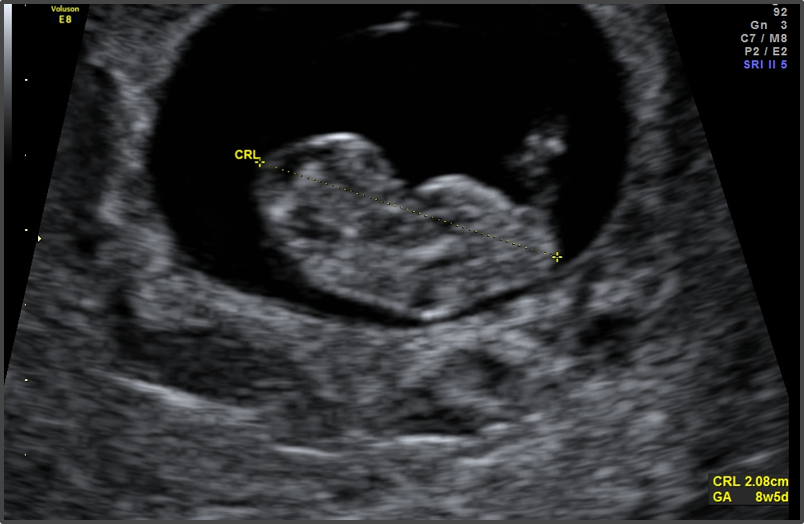
While your belly may or may not be visibly changing, you may be surprised to see your breasts have noticeably changed (which may be welcome or unwelcome, depending on your preference!). We recommend you shop for some new, comfy, stretchy bras at this stage in the game. If you’re planning on breastfeeding, a nursing bra can be worn now and will come in handy after baby’s born. Plus, nursing bras are normally made to keep up with a changing bust size, and you probably have some more growing to do.
With an 11-week fetus, the chance of miscarriage might be on your mind. It’s tough not to worry—welcome to motherhood!—but now that you’ve seen baby’s heartbeat, your miscarriage risk has significantly dropped, and once you hit your second trimester, the risk will be less than 1 percent.
Can I have a baby bump at 11 weeks pregnant?
Definitely! Every woman’s body is different, and a bump can start popping out when baby’s at 11 weeks (especially if you’re carrying multiples or have been pregnant before). In some cases, the first sign of a bump may not be a rounded belly but a too-tight feeling in the waistband of your favorite jeans or skirt. Time to shop for maternity clothes!
In some cases, the first sign of a bump may not be a rounded belly but a too-tight feeling in the waistband of your favorite jeans or skirt. Time to shop for maternity clothes!
Can you feel baby move at 11 weeks?
Was that a kick you just felt? You’re probably eager to experience those magical first flutters and wondering, “can you feel baby move at 11 weeks?” At this stage, it’s probably a little too early to feel baby move—that won’t “kick” in until around the second trimester. That’s because your 11-week fetus is still too small, but don’t worry—it will happen soon!
“Why choose a midwife? You're looking for someone to hold space for you in your transition to parenthood and walk you through your options for compassionate, personalized, evidence-based care for your pregnancy. Midwives will help keep you and your baby safe while making sure you feel cared for and respected.” - Olivia Bennett, MSN, CNM, ARNP, certified nurse midwife and clinical director at Quilted Health in Tacoma and Pierce County, Washington
Tips for 11 Weeks Pregnant
Want to take charge of your health and that of your future baby? Here’s what you can do now.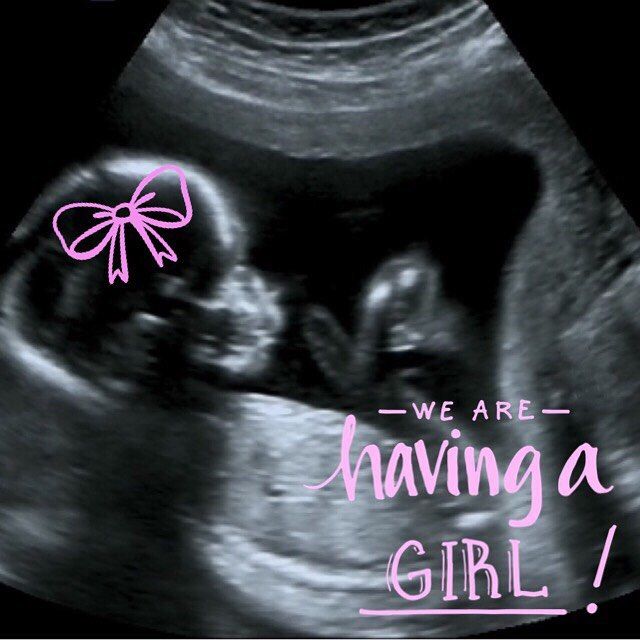
Get lots of calcium
Helping baby grow strong bones and teeth requires about 1,000 milligrams of calcium as part of your daily diet. Dairy products like milk, yogurt and pasteurized cheese are always good choices, but you can also get calcium from other sources like almonds, salmon, tofu and eggs.
Take a walk
Stretch those legs! Walking is one of the best forms of exercise during pregnancy because it’s safe, easy to do, gentle on the joints and a great all-over workout. If you’re new to exercise, walking is also ideal because you can start at your own pace and distance and work up gradually. Plus, all that fresh air and movement may help with nausea! Just make sure to drink plenty of water and avoid walking during the hottest times of the day.
Eat right to avoid heartburn
Gas and nausea during pregnancy are hard enough without throwing heartburn into the mix. You can curb that acid reflux by eating small meals and steering clear of foods that are heavy on spice and fat.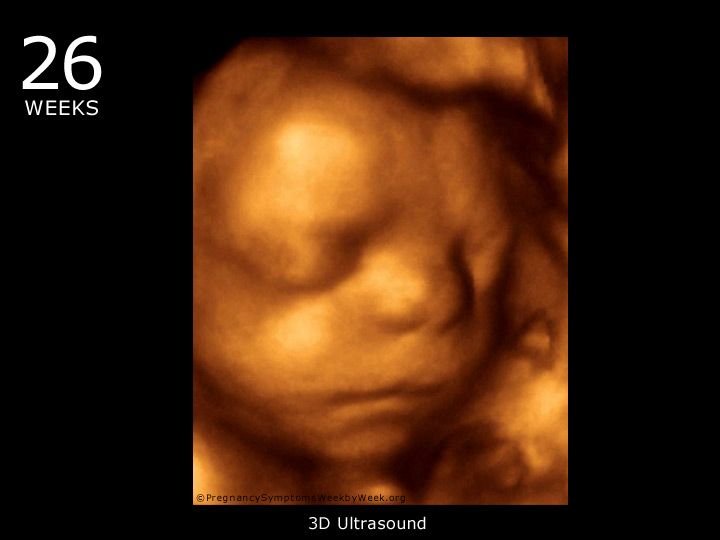 And as great as it feels to put your feet up after a meal, try not to lie down right away so your food can properly digest.
And as great as it feels to put your feet up after a meal, try not to lie down right away so your food can properly digest.
Baby your skin
When baby’s at 11 weeks, your skin hasn’t started to expand too much yet, which is why it’s the perfect time to be proactive about stretch marks. There’s no sure-fire way to avoid those stripes (sometimes it’s just a matter of genetics), but moisturizing regularly, drinking plenty of water and eating skin-boosting nutrients like Vitamins C, E, B2, B3 and zinc can help.
ADVERTISEMENT
Pregnancy Checklist at 11 Weeks Pregnant
Reminders for the week:
save article
PREVIOUS
Week 10Pregnancy
NEXT
Week 12Pregnancy
ADVERTISEMENT
Watch These Videos Next:
Article saved.Go to My Saved Articles
Article removed.
Pregnancy at week 11 | Pregnancy Birth and Baby
Pregnancy at week 11 | Pregnancy Birth and Baby beginning of content4-minute read
Listen
Your baby
Your baby now measures about 4. 5 cm — about the size of a fig - and weighs around 10g. The brain and nervous system have almost finished developing. The muscles and nerves are now starting to work together so the baby is starting to make small, jerky movements around your uterus.
5 cm — about the size of a fig - and weighs around 10g. The brain and nervous system have almost finished developing. The muscles and nerves are now starting to work together so the baby is starting to make small, jerky movements around your uterus.
The baby’s head is now about the same length as their body. The bones are starting to harden, the baby’s hands and feet are in front of their body, and they have individual fingers and toes with nail beds. The passages of the nose are open and the tongue has formed.
The fingernails are growing, the heart is pumping blood, and there are teeth inside the gums.
Your baby at 11 weeks
| Length: | 4.5cm |
| Weight: | 10g |
Your body
Many women find morning sickness starts to settle down by week 11, although some don’t feel better until about week 14, when the pregnancy hormones decrease and the placenta starts to support the baby.
You might get cramps in your legs or feet. One way of dealing with this is to eat more calcium in foods such as milk, yoghurt and cheese. Make sure you’re getting enough exercise, too – about 30 minutes of moderate exercise per day is ideal.
Things to remember
From week 11 of your pregnancy, you can have an ultrasound scan to check how the baby is developing. This is often when you see an image of your baby for the first time. An ultrasound can be used to check your due date and also whether your baby is at risk of a condition such as Down syndrome.
You might also think about prenatal screening now to check for Down syndrome and other genetic abnormalities. You do not have to do this; it depends on your age, history and own personal circumstances. Now is a good time to talk to your doctor or a genetic counsellor about whether screening is right for you.
The reasons you might decide to talk to a genetic counsellor include if:
- there are genetic conditions in your family or the father’s family
- you or your partner has a serious condition that could be passed on to the baby
- you both carry a faulty gene
- you are older than 35
- you have been exposed to harmful chemicals or household products during your pregnancy
- you have had an ultrasound or another screening test that showed your baby could be at increased risk
- you and your partner come from an ethnic backgrounds where genetic problems are more common
Read next
Your pregnancy at 12 weeks
Learn about your pregnancy journey and what is happening to you and your baby.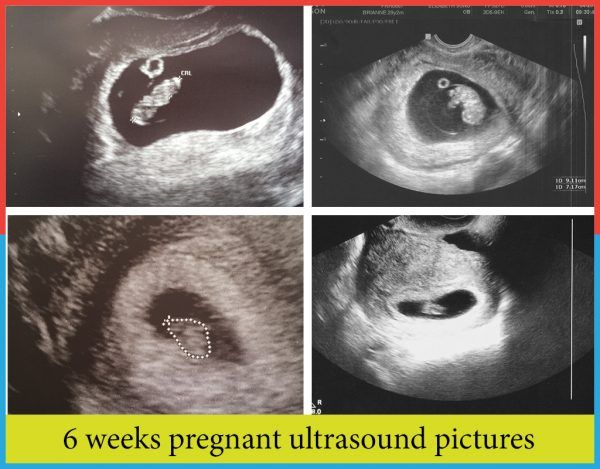
Speak to a maternal child health nurse
Call Pregnancy, Birth and Baby to speak to a maternal child health nurse on 1800 882 436 or video call. Available 7am to midnight (AET), 7 days a week.
Sources:
NSW Health (Having a baby), Raising Children Network (Pregnancy week-by-week), Medical News Today (Your pregnancy at 11 weeks)Learn more here about the development and quality assurance of healthdirect content.
Last reviewed: August 2020
Back To Top
Related pages
- Pregnancy week-by-week
Need more information?
Pregnancy at week 10
Think about the prenatal screening tests you might have, and whether you want a dating scan to confirm your due date.
Read more on Pregnancy, Birth & Baby website
Screening tests in the first 3 months of pregnancy
You may wish to find out early in your pregnancy if your baby is at increased risk of a serious health condition by having a screening test in your first trimester (the first 3 months of pregnancy).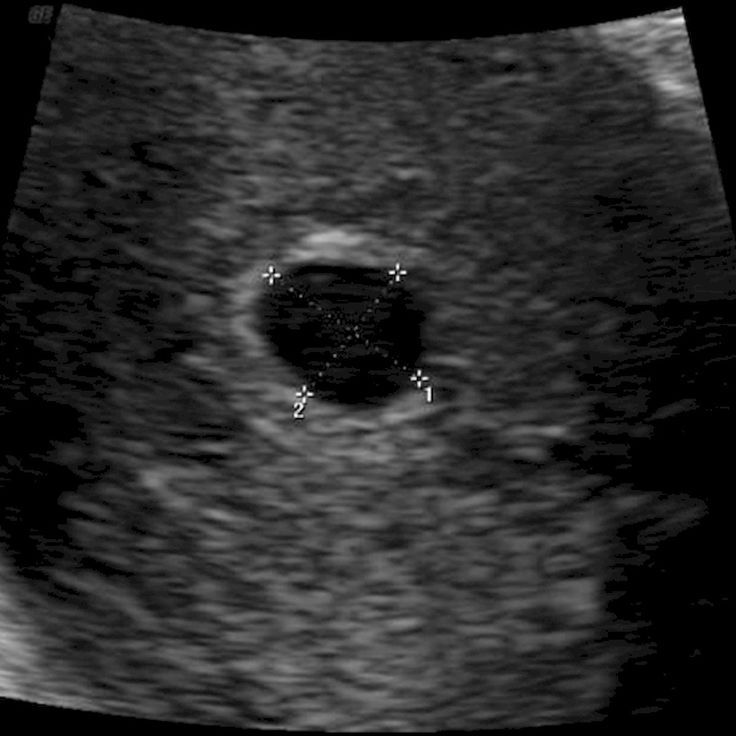
Read more on WA Health website
Ultrasound scans during pregnancy
Ultrasound scans will help you and your doctors monitor your baby’s health throughout your pregnancy. Find out more, including about why you might need one.
Read more on Pregnancy, Birth & Baby website
Rubella and pregnancy
Find out about the symptoms of rubella, what can happen if you catch rubella before pregnancy or while pregnant, and how to protect yourself against infection.
Read more on Pregnancy, Birth & Baby website
Women's Health - InsideRadiology
InsideRadiology provides free and easily accessible, accurate, up to date and credible information about medical imaging tests and procedures.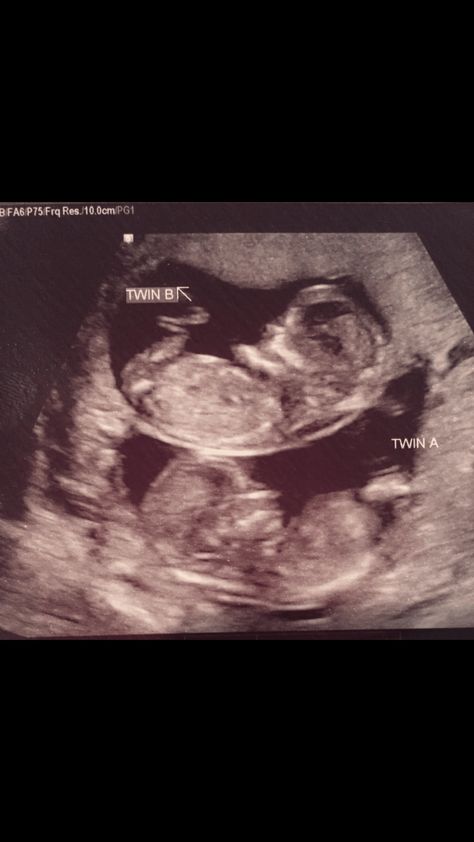
Read more on InsideRadiology website
Routine antenatal tests
During pregnancy, you'll be offered a range of tests, including blood tests and ultrasound scans. Each test can tell you something about you and your baby’s health.
Read more on Pregnancy, Birth & Baby website
Chorionic Villous Sampling - InsideRadiology
InsideRadiology provides free and easily accessible, accurate, up to date and credible information about medical imaging tests and procedures.
Read more on InsideRadiology website
Chorionic Villus Sampling (CVS)
Read more on RANZCOG - Royal Australian and New Zealand College of Obstetricians and Gynaecologists website
Nuchal Translucency Scan - InsideRadiology
InsideRadiology provides free and easily accessible, accurate, up to date and credible information about medical imaging tests and procedures.
Read more on InsideRadiology website
Chorionic villus sampling (CVS)
Chorionic villus sampling (CVS) is a test done during pregnancy to detect genetic abnormality in an unborn baby by sampling cells from the placenta.
Read more on Pregnancy, Birth & Baby website
Disclaimer
Pregnancy, Birth and Baby is not responsible for the content and advertising on the external website you are now entering.
OKNeed further advice or guidance from our maternal child health nurses?
1800 882 436
Video call
- Contact us
- About us
- A-Z topics
- Symptom Checker
- Service Finder
- Linking to us
- Information partners
- Terms of use
- Privacy
Pregnancy, Birth and Baby is funded by the Australian Government and operated by Healthdirect Australia.
Pregnancy, Birth and Baby is provided on behalf of the Department of Health
Pregnancy, Birth and Baby’s information and advice are developed and managed within a rigorous clinical governance framework. This website is certified by the Health On The Net (HON) foundation, the standard for trustworthy health information.
This site is protected by reCAPTCHA and the Google Privacy Policy and Terms of Service apply.
This information is for your general information and use only and is not intended to be used as medical advice and should not be used to diagnose, treat, cure or prevent any medical condition, nor should it be used for therapeutic purposes.
The information is not a substitute for independent professional advice and should not be used as an alternative to professional health care. If you have a particular medical problem, please consult a healthcare professional.
Except as permitted under the Copyright Act 1968, this publication or any part of it may not be reproduced, altered, adapted, stored and/or distributed in any form or by any means without the prior written permission of Healthdirect Australia.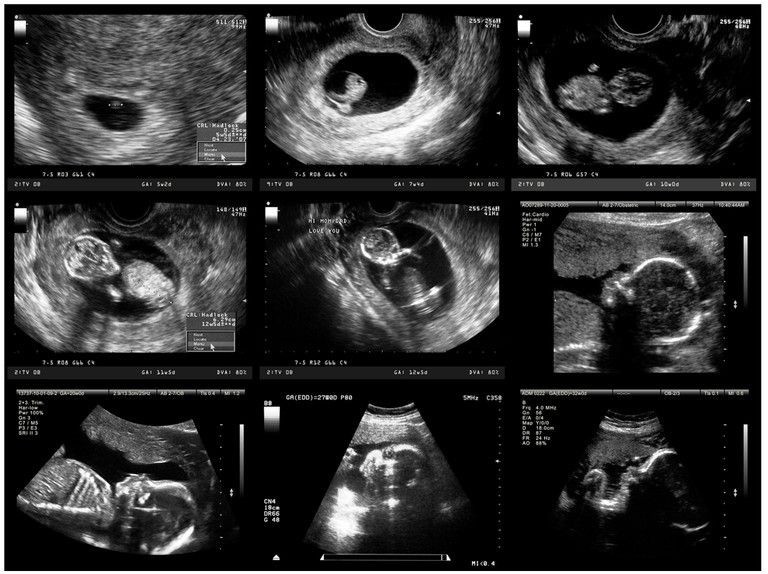
Support this browser is being discontinued for Pregnancy, Birth and Baby
Support for this browser is being discontinued for this site
- Internet Explorer 11 and lower
We currently support Microsoft Edge, Chrome, Firefox and Safari. For more information, please visit the links below:
- Chrome by Google
- Firefox by Mozilla
- Microsoft Edge
- Safari by Apple
You are welcome to continue browsing this site with this browser. Some features, tools or interaction may not work correctly.
fetal ultrasound at 11 weeks
- Fetal development by week
- Our apparatus
- other types...
- Pregnancy management
- Fetometry data at various times
The cost of ultrasound in the first trimester up to 10 weeks is 450 UAH. The price includes biometrics according to protocols, 3D/4D visualization.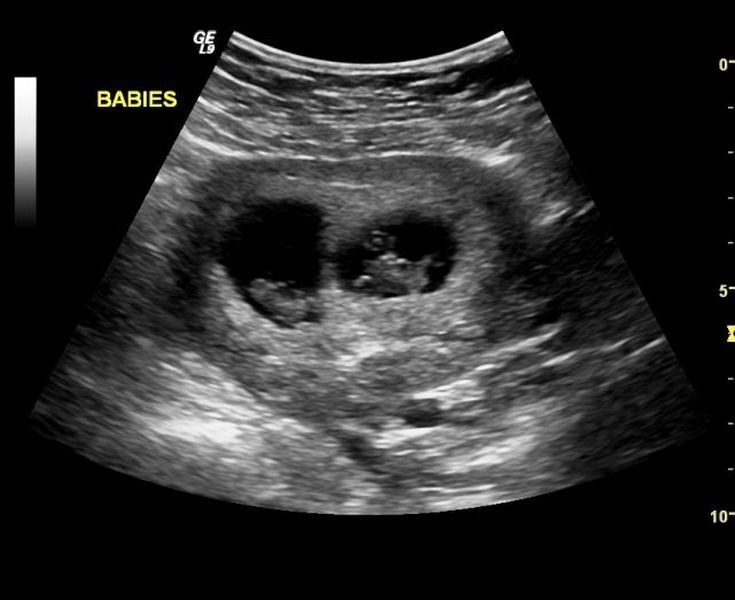
The cost of ultrasound in the first trimester for a period of 10 weeks 6 days is 550 hryvnia. The price includes prenatal screening, biometric protocols, 3D/4D visualization.
Cost of comprehensive prenatal screening according to PRISCA (ultrasound + beta hCG + PAPP with calculation of individual risk of chromosomal pathologies (for example, Down syndrome or Edwards syndrome) – 1005 UAH. in size with the body.According to the ultrasound of the fetus at 11 weeks of pregnancy, it will be possible to note an increase in size almost twice during this week.In addition to intensive growth, there are multiple changes in the appearance of the fetus.Your unborn child will finally say goodbye to frog membranes between the fingers , starting from week 11, all 5 fingers are separated.On a fetal ultrasound at 11 weeks of pregnancy, it is still very difficult to count the fingers and see them, but soon this will be available, especially with the use of 3d 4d ultrasound during pregnancy.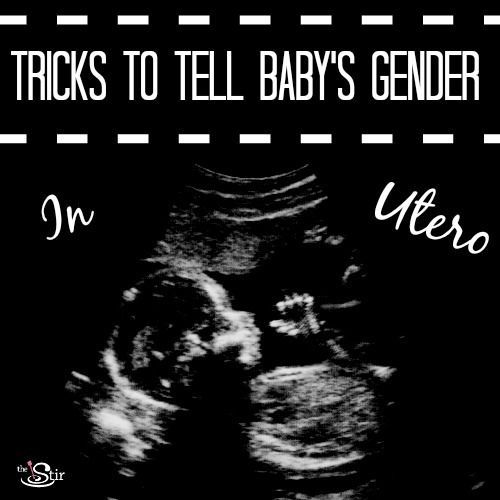 0015
0015
The iris of the fetal eye begins to form. Hair follicles develop and grow on the head of the fetus, nails on the fingers and toes, ovaries (if the fetus is female). Nipples become visible. The auricles at the ear openings, nasal passages, tongue and palate in the oral cavity are finally formed.
The stomach is clearly visible on ultrasound of the fetus at 11 weeks of gestation in the form of a black spot in transverse scanning through the fetal abdomen.
At Fetal ultrasound at 11 weeks gestation you can still see the yolk sac. It may become larger, but it no longer performs the function of respiration and nutrition. In the ovaries, with ultrasound of the fetus at 11 weeks of gestation, the corpus luteum is practically not determined, because. the placenta (chorion) took over the hormonal support of pregnancy.
Uterus with ultrasound of the fetus at 11 weeks of pregnancy is 10.5-12 cm long. Its upper edge now reaches the upper edge of the pubic symphysis. If you are not overweight, when you lightly press your finger behind the pubis, you will feel the upper edge of the growing uterus. From the 11th week of pregnancy, you will be able to observe the growth of the uterus, it no longer has bone obstructions. Officially, from this point in pregnancy, your belly will begin to gradually round, and this will not be caused by bloating or fluid retention, but by the growth of the fetus itself and the uterus along with it. Unpleasant early symptoms of pregnancy gradually begin to subside. If you regularly feel cramps in the calf muscles, you need to gently massage this area and add calcium-rich foods (hard cheeses, milk, cottage cheese, kefir) to your diet.
There is no need to eat for two, even if you are constantly hungry.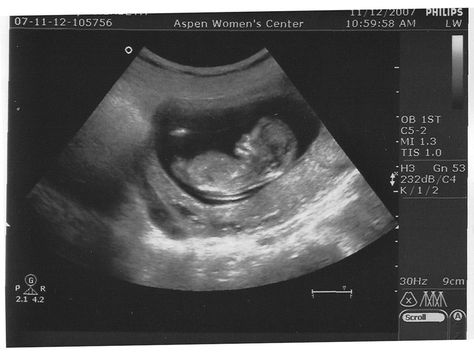 Give preference to low-calorie foods. Try not to eat a lot of sweets and starchy foods. Drink more liquid, this will reduce the feeling of hunger. It is very important to be busy with your favorite thing, this will allow you not to concentrate on food.
Give preference to low-calorie foods. Try not to eat a lot of sweets and starchy foods. Drink more liquid, this will reduce the feeling of hunger. It is very important to be busy with your favorite thing, this will allow you not to concentrate on food.
At the end of the 11th week of pregnancy, it is time for the prenatal screening of the first trimester of pregnancy, which is carried out from 11 to 13 weeks and 6 days. Prenatal screening for hereditary and congenital fetal diseases includes in-depth fetal ultrasound at 11 weeks of gestation and biochemical diagnosis of pregnancy-associated hormones. Fetal ultrasound data at 11 weeks of gestation are considered in conjunction with hormones to determine the risk group of women for fetal chromosomal abnormalities for such women (if they wish) to undergo invasive prenatal diagnosis - amniocentesis and fetal karyotyping. Read more about prenatal screening in fetal ultrasound at 12 weeks of gestation.
read more: 12th week of pregnancy
We perform all types of ultrasound diagnostics:
- 3D and 4D ultrasound during pregnancy
- Fetometry data at various times
- Ultrasound diagnostics of Down syndrome and other chromosomal abnormalities
- Evaluation of the correct development of the fetus by ultrasound
- Hydrotubation (echohydrotubation): study of the patency of the fallopian tubes (ultrasonic hysterosalpingoscopy)
- Transvaginal
- Ovaries
- Uterus
- Mammary glands
Female Ultrasound
- Duplex Scan
- Cerebral vessels
- Neck vessels (duplex angioscanning of the main arteries of the head)
- Veins of the lower extremities
Vascular ultrasound
- Transrectal (trusion): prostate
- Scrotum (testicles)
- Vessels of the penis
Male ultrasound
- Appendicitis
- Abdomen
- Gallbladder
- Stomach
- Intestines
- Bladder
- Soft tissue
- Pancreas
- Liver
- Kidney
- Joints
- Thyroid
- Echocardiography (ultrasound of the heart)
Organ ultrasound
- Varicose veins: ultrasound diagnosis of varicose veins
- Hypertension: Ultrasound diagnosis of hypertension
- Thrombosis: ultrasound diagnosis of vein thrombosis
- Ultrasound diagnosis of chronic pancreatitis
- for kidney stones
- for cholecystitis
Ultrasound diagnostics of diseases
- Hip joints in newborns (if hip dysplasia is suspected)
Pediatric ultrasound
prices for tests for pregnant women
During the development of the fetus, ultrasound is one of the key methods of examination.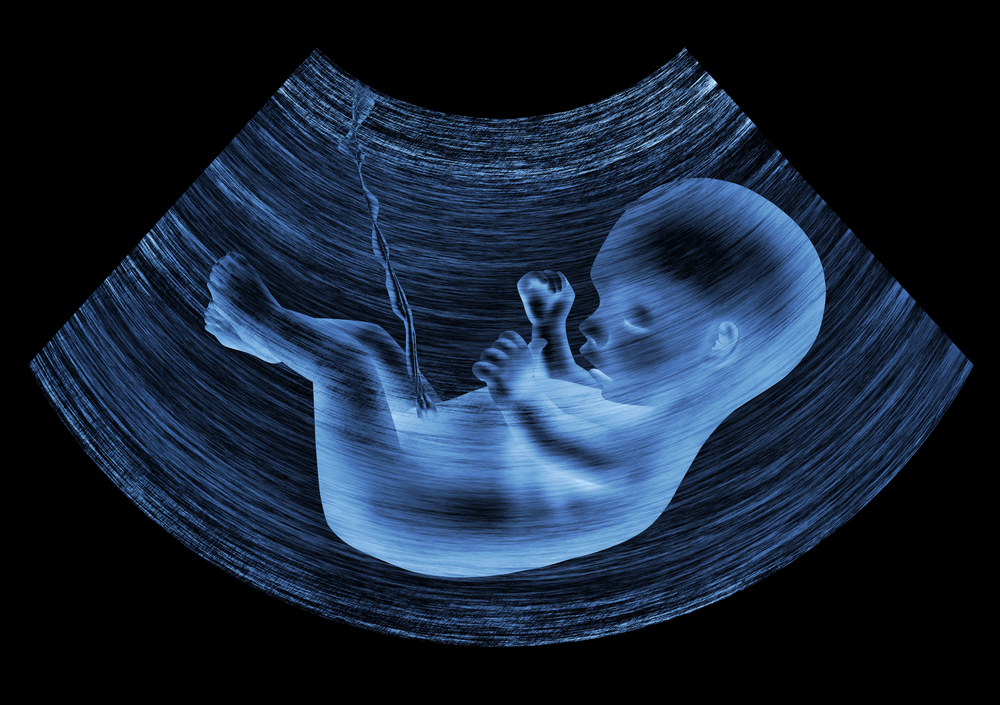 There is no exact schedule for ultrasound, so the doctor focuses primarily on the condition of the patient, the condition of the fetus, the presence of somatic pathology. If we take a physiologically occurring pregnancy, then ultrasound is performed in each of the trimesters.
There is no exact schedule for ultrasound, so the doctor focuses primarily on the condition of the patient, the condition of the fetus, the presence of somatic pathology. If we take a physiologically occurring pregnancy, then ultrasound is performed in each of the trimesters.
Ultrasound at 8 weeks is the first time this study is recommended. The eighth week is the first critical period, therefore, it is most rational to carry out diagnostics during this period.
Since it is the 8th week of pregnancy, a transvaginal examination is performed more often, which is more reliable. At this time, transabdominal ultrasound is used less and less. The transvaginal method does not pose any threat to either the mother or the fetus.
Ultrasound at 8 weeks can confirm
- Normal uterine pregnancy;
- Dimensions of gestational sac;
- Whether the pregnancy is multiple;
- Place of attachment of fetus;
- Exclude the presence of malformations;
- Exclude various obstetric complications.
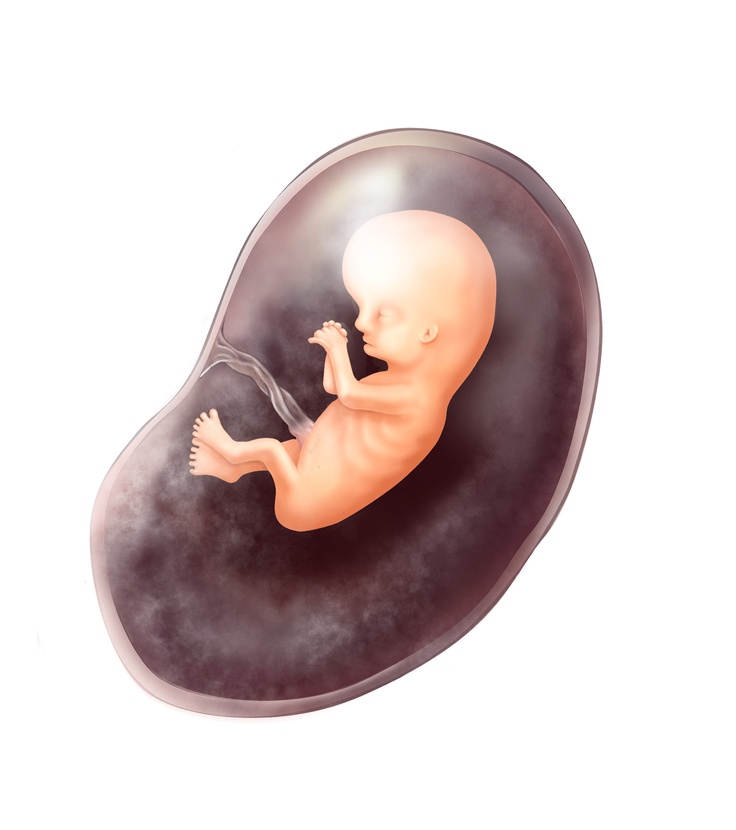
If the doctor confirms a physiologically proceeding pregnancy on ultrasound, does not reveal complications, the fetus develops according to age norms, then the next ultrasound is prescribed at 12 weeks. This period is another critical period when it is necessary to assess the condition of the woman and the unborn baby.
If the first two critical periods are mainly related to hormonal changes, then the next period - 22 weeks, is most often associated with sexual infections. Therefore, we also perform an ultrasound at 22 weeks. Pregnancy can provoke the development of latent infections, which, in turn, can lead to certain complications.
Tests at 8 weeks of gestation
There are no exact recommendations for registering pregnant women, but doctors recommend starting monitoring at the antenatal clinic before 12 weeks. There is a mandatory list of tests in accordance with the order of the Ministry of Health of the Russian Federation, and an additional one, which is appointed by the gynecologist individually.
Tests at 8 weeks of gestation:
- CBC;
- OAM;
- Swab;
- Determination of blood group and Rh factor;
- Tests for major venereal diseases.
In addition, the 8th week of pregnancy is the period of visiting the following doctors:
- Therapist;
- Ophthalmologist;
- ENT;
- Dentist.
Accordingly, if any pathology is detected, any of these specialists has the right to prescribe an additional analysis in their direction. If this pregnancy proceeds with complications, or if there are previous complications in the anamnesis, then the laboratory and instrumental complex may expand.
You will have to take tests regularly, so you should prepare in advance for the next tests at week 12.
Ultrasound at 12 weeks pregnant
As we mentioned earlier, the next critical period is the 12th week of pregnancy. Therefore, the next ultrasound is performed at this time.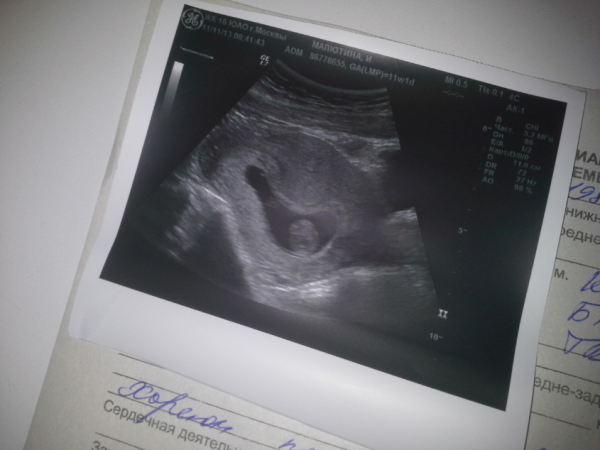 Here we are not talking about a simple study, but about screening, which allows you to identify intrauterine malformations of the fetus.
Here we are not talking about a simple study, but about screening, which allows you to identify intrauterine malformations of the fetus.
In contrast to the ultrasound at 8 weeks, this is predominantly a transabdominal examination. Transvaginal ultrasound is performed only for certain indications:
- Low insertion of the placenta;
- Presence of isthmic-cervical insufficiency;
- Pelvic inflammation;
- Atypical location of myomatous nodes;
- Incorrect position of the fetus, in which transabdominal ultrasound at 12 weeks of gestation is uninformative.
So, what information does an ultrasound give a gynecologist?
- Detection of deviations in the growth and development of the fetus;
- Possibility to suspect congenital anomalies;
- Exact gestational age;
- Palpitation;
- Cord entanglement;
- Characteristics of amniotic fluid;
- Condition of the placenta.

It must be clearly understood that ultrasound during pregnancy is only one of the methods of examination, therefore, if there are any deviations in the indicators, one should not panic, it is necessary to consult a specialist. The doctor, interpreting the results, always relies on many factors, which allows him to adequately assess the true state of the future mother and fetus.
Even if deviations in some indicators are confirmed, doctors still only talk about a certain probability of developing a particular pathology. In this case, a second screening may be prescribed, or a similar study is carried out at a later date. In any case, the final decision regarding the continuation of the pregnancy is made exclusively by a specialist.
Tests at 12 weeks of pregnancy
As we have already said, 12 weeks is the time for screening. For this, an ultrasound examination is prescribed, the external indicators of the woman are evaluated, and a blood test is performed.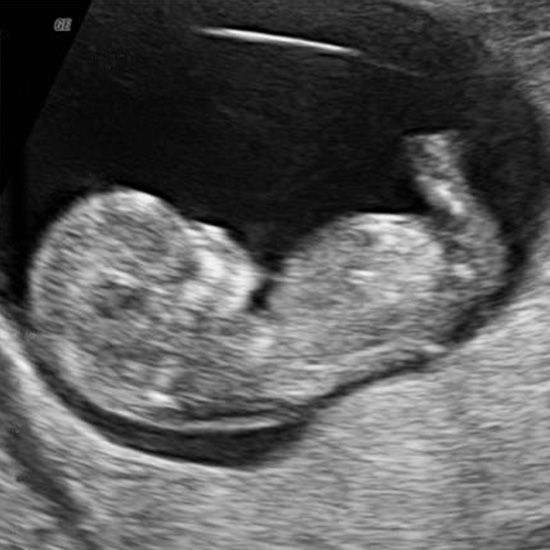
Particular attention is paid to two coefficients: β-hCG and PAPP-A. It is believed that in the presence of deviations according to these parameters, one can judge the presence of fetal pathologies. According to the level of hCG, doctors predict the further management of pregnancy and the possibility of miscarriage or premature birth.
Accordingly, according to the results of screening, it is possible to identify:
- The baby has Down's syndrome;
- Multiple pregnancy;
- Specify term;
- Detect toxicosis;
- Determine the risk of miscarriage;
- Check for other chromosomal abnormalities.
Thus, tests at the 12th week of pregnancy are decisive for solving a number of issues related to the further development of the fetus. It should be clearly understood that screening is not 100% reliable, therefore, if you receive any deviations from normal results, you should immediately contact a specialist who can correctly assess such changes in indicators.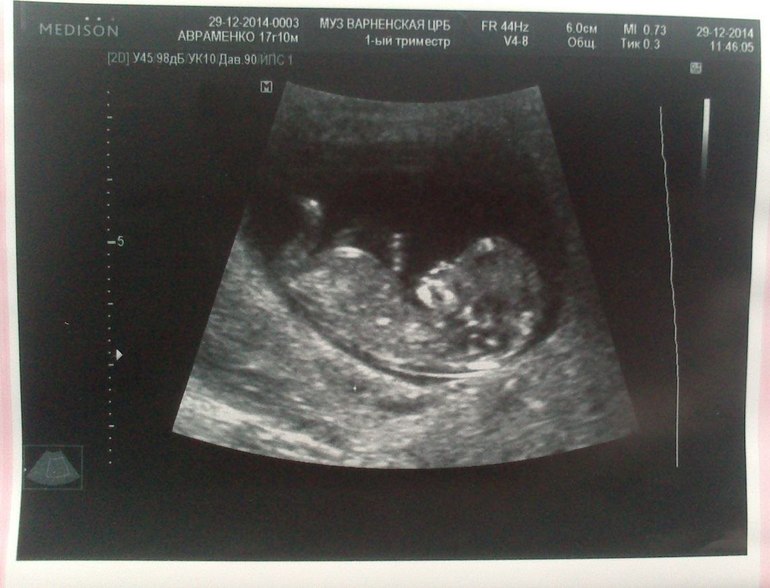
Ultrasound at 22 weeks gestation
The next scheduled ultrasound is performed at 22 weeks of gestation. Here, for the doctor, it is not the condition of the mother or the size of the fetus that is important, but the assessment of the formation of various organs and systems, as well as bones.
So, the 22nd week - the fetus has already formed all the main organs and systems, and on the monitor screen the child acquires the outlines familiar to future parents. Accordingly, the following indicators come to the fore:
- All internal organs should form. During an ultrasound, the doctor evaluates their location, how they function;
- The spine is also studied, the presence of bones and their sizes are determined;
- Assessing the brain and its activity;
- Assess the condition of the placenta, umbilical cord vessels;
- Composition of amniotic fluid;
- Condition of the cervix.
Unlike ultrasound at 8 weeks, ultrasound at this time is performed transabdominally.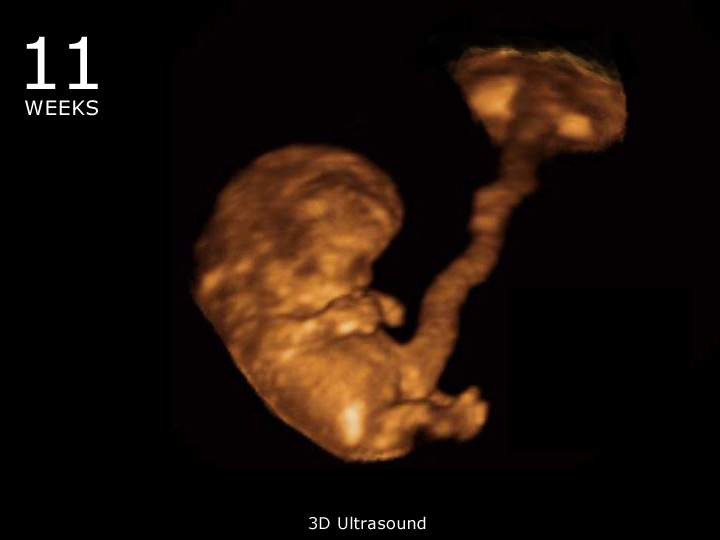 22 weeks is already the second trimester, and right now the question is being decided whether there are serious deviations in the development of the fetus, and further actions of obstetricians. The question of whether to continue a further pregnancy is decided not by one doctor, but by a whole council, based on numerous research results.
22 weeks is already the second trimester, and right now the question is being decided whether there are serious deviations in the development of the fetus, and further actions of obstetricians. The question of whether to continue a further pregnancy is decided not by one doctor, but by a whole council, based on numerous research results.
Tests at 22 weeks pregnant
Week 22 is when the second screening is more common. This analysis is prescribed in the period from 18 to 24 weeks, but this time is considered optimal. Accordingly, during repeated screening, the doctor already makes final conclusions about the condition and development of the fetus, the presence of deviations.
In addition to ultrasound, the doctor prescribes mandatory tests to monitor the woman's health. The expectant mother again takes a general blood and urine test, where the most important are a number of indicators: hemoglobin, erythrocytes, leukocytes, ESR, protein in the urine.
During the examination, the gynecologist necessarily measures the woman's height, weight, blood pressure level, and measures the abdomen.
